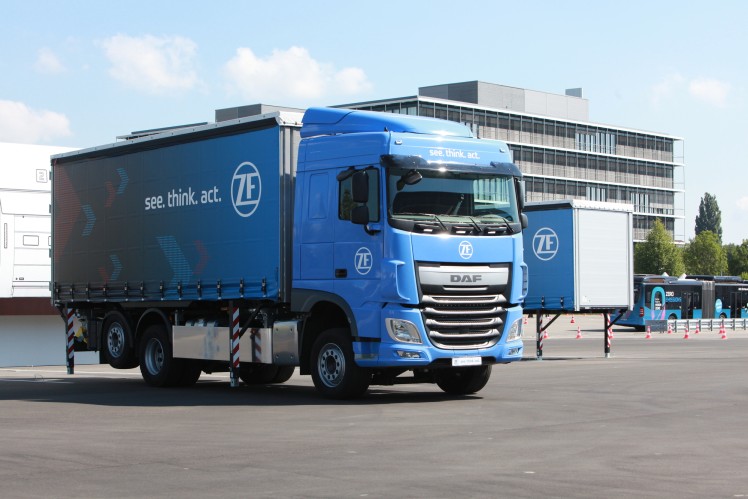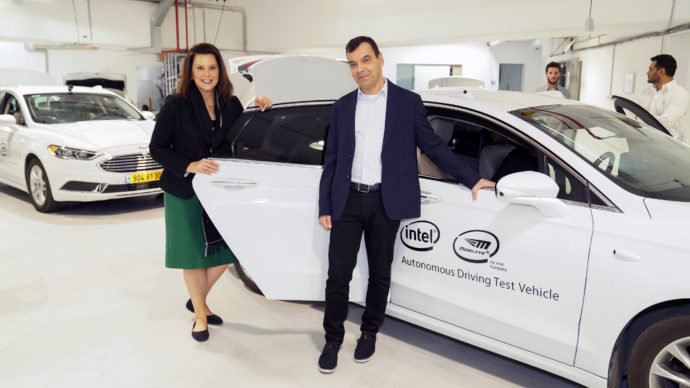The view from the thirty-fourth floor extends beyond the office towers and flat Bauhaus roofs, past small houses from the city’s early days, and out to the Mediterranean. The mirrored twin towers behind the highway in Tel Aviv are like an aerie for autonomous driving innovations. A team from the start-up TriEye is here working… Continue reading @VW Group: View Beyond the Visible
Tag: Tier 1 Suppliers
Coup shuts down its electric moped scooter service
Coup, an electric moped scooter-sharing service that operates in Berlin, Paris and Berlin, has announced in an email that it is going to shut down in all three cities. On Twitter, the company says that operating the service is “economically unsustainable” in the long term. “We plan to discontinue our service in Berlin and Tübingen… Continue reading Coup shuts down its electric moped scooter service
@Groupe PSA: Kepler Cheuvreux Fieldtrip – Faurecia Hydrogen Strategy
Go to Source
LA AutoMobility – November 18-21, 2019
November 18–21, 2019 | LA AutoMobility | Los Angeles, CAPress Conference: AEye | Tuesday, November 19th, 3:55-4:10pm PST | Technology Pavilion: Structure AConnect with AEye! Request a MeetingLA AutoMobility – November 18-21, 2019 —Unique iDAR Features That Drive SAE’s 5 Levels of AutonomyA Decade of Autonomous Vehicle InvestmentsAEye’s New AE110 iDAR System Integrated into HELLA Vehicle at IAA in FrankfurtAEye Team Profile: Ove SalomonssonThe Human Classification Framework: Search, Acquire, and ActAEye Team Profile: Indu VijayanAbrupt Stop DetectionThe Register and AEye President, Blair LaCorte, Predict the Future of Self-Driving CarsAEye Advisory Board Profile: Adrian Kaehler
Press: ZF To Establish China Industrial Park in Jiaxing
Jiaxing, China. On November 22nd, 2019, ZF (China) Investment Co., Ltd. and Jiaxing Economic & Technological Development Zone (JXEDZ) signed an agreement for the establishment of Industrial Park in China. Guests including Mr. Chen Lizhong, Member of the Standing Committee of CPC Jiaxing Municipal Committee, the Secretary of Park Work Committee of JXEDZ, Mr. Wilhelm… Continue reading Press: ZF To Establish China Industrial Park in Jiaxing
US Congress: Act on Autonomous Driving
And again a new start for a nationwide law for autonomous driving in the USA. There have been a few attempts to pass a law Autonomous driving in the United States to say goodbye, but all of them failed. For example, the individual US states have each issued their own laws and left behind a… Continue reading US Congress: Act on Autonomous Driving
Michelin and Faurecia to invest 140 million euros in Symbio hydrogen mobility JV
Michelin also claims that hydrogen fuel cells are particularly suitable for intensive use and for those who need greater autonomy. New Delhi: Michelin and Faurecia have decided to invest 140 million euros in Symbio hydrogen mobility joint venture company, claims the tyre manufacturer. Michelin also says that the JV will combine hydrogen fuel cell dedicated… Continue reading Michelin and Faurecia to invest 140 million euros in Symbio hydrogen mobility JV
Michigan Program Adds Mobileye Collision-Avoidance Technology to State Vehicles
Michigan Gov. Gretchen Whitmer and Mobileye President and CEO Amnon Shashua prepare for an autonomous car ride through the busy streets of Jerusalem on Thursday, Nov. 21, 2019. The ride was part of Whitmer’s visit to the Israel headquarters of Mobileye, an Intel company, where she announced a pilot program using Mobileye’s collision avoidance technology… Continue reading Michigan Program Adds Mobileye Collision-Avoidance Technology to State Vehicles
Press: Chassis check for winter season prevents expensive repairs
Responsible workshops therefore immediately check the chassis as part of the seasonal wheel change and determine the need for repairs to brakes, wheel suspensions and dampers. But with the increasing market share of all-season tyres, this customer contact is no longer necessary. In a survey conducted by the ADAC in 2018, 25 percent of motorists… Continue reading Press: Chassis check for winter season prevents expensive repairs
Japanese justice allows Carlos Ghosn to talk for an hour with his wife
Posted on Nov. 21, 2019 at 3:14 pm Seven months later his release on bail under very strict conditions Carlos Ghosn will be able to speak, for the first time, for an hour, with his wife Carole this Friday. When he was released from prison last April, the court imposed extremely strict conditions on him,… Continue reading Japanese justice allows Carlos Ghosn to talk for an hour with his wife


